Related Research Articles

IOE, UCL's Faculty of Education and Society (IOE) is the education school of University College London (UCL). It specialises in postgraduate study and research in the field of education and is one of UCL's 11 constituent faculties. Prior to merging with UCL in 2014, it was a constituent college of the University of London. The IOE is ranked first in the world for education in the QS World University Rankings, and has been so every year since 2014.

The National Service Scheme (NSS) is an Indian government sector public service program conducted by the Ministry of Youth Affairs and Sports of the Government of India. Popularly known as NSS, the scheme was launched in Gandhiji's Centenary year in 1969. Aimed at developing student's personality through community service, NSS is a voluntary association of young people in Colleges, Universities and at +2 level working for a campus-community linkage.

The Duke of Edinburgh's Award is a youth awards programme founded in the United Kingdom in 1956 by Prince Philip, Duke of Edinburgh, that has since expanded to 144 nations. The awards recognise adolescents and young adults for completing a series of self-improvement exercises modelled on Kurt Hahn's solutions to his "Six Declines of Modern Youth".

The Australian Youth Orchestra (AYO), formerly Youth Music Australia, is an Australian organisation for young musicians.
Volunteer Police Cadets (VPC) is a nationally recognised uniformed police youth organisation which operates in most parts of the United Kingdom. It is one of several cadet youth organisations including the Army Cadet Force, Sea Cadets, Royal Marine Cadets, Air Training Corps and Fire Cadets. The Police Cadets teach young people skills in policing, and some may assist police officers with low-risk activities. The purpose of the VPC is not to recruit police officers of the future, but to encourage the spirit of adventure and good citizenship among its members.

NEET, an acronym for "Not in Education, Employment, or Training", refers to a person who is unemployed and not receiving an education or vocational training. The classification originated in the United Kingdom in the late 1990s, and its use has spread, in varying degrees, to other countries, including Japan, South Korea, China, Taiwan, Canada, and the United States. The NEET category includes the unemployed, as well as individuals outside the labour force. It is usually age-bounded to exclude people in old-age retirement.
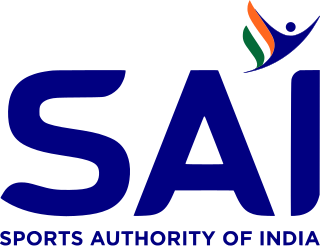
The Sports Authority of India (SAI) is the apex national sports body of India, established in 1982 by the Ministry of Youth Affairs and Sports of Government of India for the development of sports in India. SAI has 2 Sports Academic institutions, 11 "SAI Regional Centres" (SRC), 14 "Centre of Excellence" (COE/COX), 56 "Sports Training Centres" (STC) and 20 Special Area Games (SAG). In addition, SAI also manages Netaji Subhash High Altitude Training Centre as well as 5 stadiums in the national capital of Delhi, such as Jawaharlal Nehru Stadium, Indira Gandhi Arena, Major Dhyan Chand National Stadium, SPM Swimming Pool Complex and Dr. Karni Singh Shooting Range.
The Youth Training Scheme (YTS) was the name in the United Kingdom of an on-the-job training course for school leavers aged 16 and 17 and was managed by the Manpower Services Commission. The scheme was first outlined in the 1980 white paper A New Training Initiative: A Programme for Action, and it was brought into operation in 1983 to replace the Youth Opportunities Programme by the government of Margaret Thatcher. Initially lasting one year or six months, the scheme was amended in 1986 to be so that it could be extended to two years.
Venturer or Venture Scouts are programs in some Scouting organisations for young people of various age ranges in the 14–20 age range. A participant in the program is called a Venturer.
Work for the Dole is an Australian Government program that is a form of workfare, or work-based welfare. It was first permanently enacted in 1998, having been trialled in 1997. It is one means by which job seekers can satisfy the "mutual obligation requirements" to receive the Newstart Allowance, now replaced by the JobSeeker Payment. Other "mutual obligation" measures can include: accredited study, part-time work, Australian Army Reserves, and volunteer work.
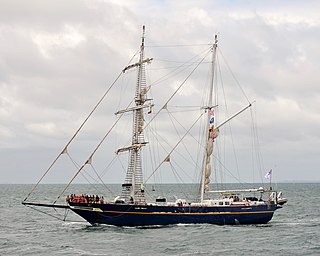
STS Young Endeavour is an Australian tall ship. Built by Brooke Marine, Young Endeavour was given to Australia by the British government in 1988, as a gift to celebrate Australian Bicentenary. Although operated and maintained by the Royal Australian Navy, Young Endeavour delivers up to twenty youth development sail training voyages to young Australians aged 16 – 23 each year. Navy personnel staff the ship and the Young Endeavour Youth Scheme coordinate the voyage program.
Training and enterprise councils (TECs) were local bodies established in England and Wales in the early 1990s to administer publicly funded training programmes, replacing the former Manpower Services Commission. The first group of 19 TECs were launched in 1990. TECs managed various schemes including Youth Training and the early modern apprenticeship. They also promoted training and business enterprise with local organisations. TECs operated as private limited companies and reported on their progress to their regional government office.

The Manpower Services Commission (MSC) was a non-departmental public body of the Department of Employment Group in the United Kingdom created by Edward Heath's Conservative Government in 1973. The MSC had a remit to co-ordinate employment and training services in the UK through a ten-member commission drawn from industry, trade unions, local authorities and education interests. This was an example of the contemporary corporatist influence on British economic policy. With three executive agencies, the Employment Services Division, the Training Services Division and the Special Programmes Division, the body was led by Geoffrey Holland of the Policy and Planning Division under the overall management of Sir John Cassells.
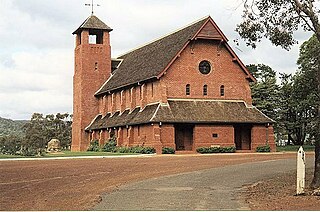
Fairbridge, Western Australia is a former farm school near Pinjarra in Southwest Western Australia. It is now used predominantly for education, school and community camps and tourism purposes.

The National Citizen Service (NCS) is a voluntary personal and social development programmer for 15–17 year olds in England and Northern Ireland, funded largely by money from the UK Government. It was formally announced in 2010 by Prime Minister David Cameron as part of the Conservative–Liberal Democrat coalition government's Big Society initiative, and it was launched in England in 2011. After the 2015 general election, the programme was continued under the Conservative government. In October 2016 Cameron, who had resigned as Prime Minister, became chairman of the NCS Trust's patrons' board. The scheme was made permanent through the National Citizen Service Act 2017.

SELECT, founded in 1900 as the Electrical Contractors' Association of Scotland, is the Scottish construction trade association for specialist businesses in the electrical industry.
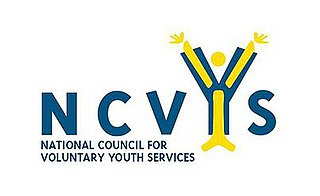
The National Council for Voluntary Youth Services (NCVYS) was a membership network of over 200 voluntary and community organisations, as well as local and regional networks, that work with and for young people across England. The organisation closed in 2016. For 80 years, NCVYS acted as an independent voice of the voluntary and community youth sector, working to inform and influence public policy, supporting members to improve the quality of their work, and also raising the profile of the voluntary and community sector's work with young people.
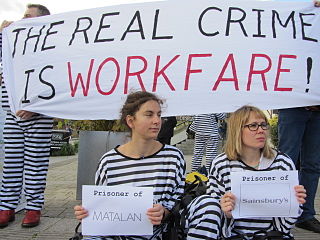
Workfare in the United Kingdom is a system of welfare regulations put into effect by UK governments at various times. Individuals subject to workfare must undertake work in return for their welfare benefit payments or risk losing them. Workfare policies are politically controversial. Supporters claim that such policies help people move off welfare and into employment whereas critics argue that they are analogous to slavery or indentured servitude and counterproductive in decreasing unemployment.
The Work Programme (WP) was a UK government welfare-to-work programme introduced in Great Britain in June 2011. It was the flagship welfare-to-work scheme of the 2010–2015 UK coalition government. Under the Work Programme the task of getting the long-term unemployed into work was outsourced to a range of public sector, private sector and third sector organisations. The scheme replaced a range of schemes which existed under previous New Labour governments including Employment Zones, New Deal, Flexible New Deal and the now abolished Future Jobs Fund scheme which aimed to tackle youth unemployment. Despite being the flagship welfare-to-work scheme of the Conservative-led coalition government, and then the incumbent Conservative government from May 2015, the DWP announced, in November 2015, that it was replacing the Work Programme and Work Choice with a new Work and Health Programme for the longer-term unemployed and those with health conditions. The DWP also announced that it would not be renewing Mandatory Work Activity and Help to Work which included Community Work Placements.

Skill India or the National Skills Development Mission of India is a campaign launched by Prime Minister Narendra Modi. It is managed by the National Skills Development Corporation of India.
References
- ↑ Cantor, Leonard Martin (1989). Vocational Education and Training in the Developed World: A Comparative Study. London, England: Taylor & Francis. p. 125. ISBN 0-415-02542-7.